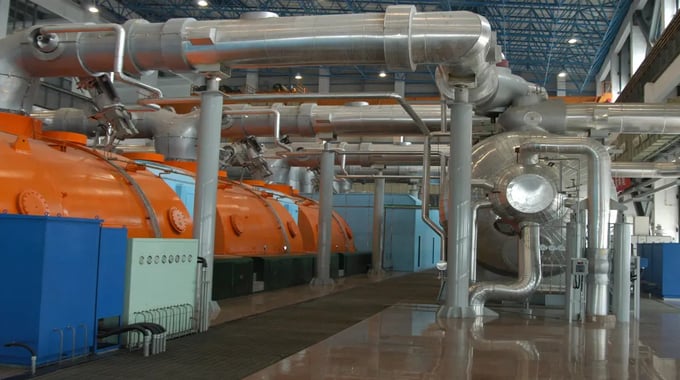June 2, 2025 | 04:38 GMT +7
June 2, 2025 | 04:38 GMT +7
Hotline: 0913.378.918
June 2, 2025 | 04:38 GMT +7
Hotline: 0913.378.918

A view of the Qinshan Nuclear Power Plant in Jiaxing City, east China's Zhejiang Province.
China has achieved the mass production of carbon-14 isotopes via its commercial reactor for the first time, announced the China National Nuclear Corporation (CNNC) on Saturday.
According to the CNNC, the project was carried out in China's very first nuclear power plant, Qinshan, and the production capacity is expected to fully meet domestic demand, as some 150 curies of carbon-14 were produced, much higher than the annual import of around 100 curies.
The Qinshan Nuclear Power Plant, located in Jiaxing City, east China's Zhejiang Province, launched the project in 2022 by producing carbon-14 in a heavy water reactor of commercial nuclear power units, in an attempt to ensure the domestic supply of radioactive isotopes.
Carbon-14 is widely applied as a marker in agriculture, chemistry, medicine, biology and other fields for being radioactive and detectable. In the past, China's carbon-14 supply largely relied on imports, which were both costly and uncertain, and as a result, the development of its downstream industries was also severely constrained.
Shang Xianhe, general manager of the Qinshan Nuclear Power Plant, told China Media Group (CMG), "We are now able to produce carbon-14 domestically, it will greatly increase the number of domestic users and further promote the development of downstream application technologies for carbon-14."
"The first difficulty actually came from the technical and management barriers. We all know that a nuclear power plant is a power-producing reactor. If we want to produce carbon-14, we need to first understand our user demand and then put the target into the reactor to irradiate it," he explained.
"After radiation, the target object needs to go through a nuclear chemical process to get purified and transformed into the material that meets the application requirements. The whole process spans a relatively long chain," Shang added.
(CGTN)

(VAN) Vikas Rambal has quietly built a $5 billion business empire in manufacturing, property and solar, and catapulted onto the Rich List.

(VAN) Available cropland now at less than five percent, according to latest geospatial assessment from FAO and UNOSAT.

(VAN) Alt Carbon has raised $12 million in a seed round as it plans to scale its carbon dioxide removal work in the South Asian nation.

(VAN) Attempts to bring down the price of the Japanese staple have had little effect amid a cost-of-living crisis.

(VAN) Fourth most important food crop in peril as Latin America and Caribbean suffer from slow-onset climate disaster.

(VAN) Shifting market dynamics and the noise around new legislation has propelled Trouw Nutrition’s research around early life nutrition in poultry. Today, it continues to be a key area of research.

(VAN) India is concerned about its food security and the livelihoods of its farmers if more US food imports are allowed.